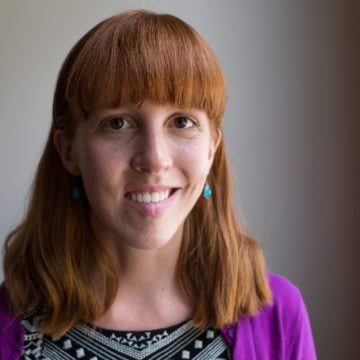‘Another Book, Another Month, Another Day Closer to You’
A Texas nonprofit connects incarcerated mothers with their children through reading.
by Rose Cahalan
April 6, 2017
The library is decorated with inspirational posters, so many that their cumulative effect is almost aggressively cheerful. “Reading is a HOOT!” proclaims one, a flock of cartoon paper owls tacked up alongside it on the white cinderblock wall. In bright primary colors, other posters extol the virtues of creativity, initiative and the Dewey decimal system. It’s an overcast afternoon in March, with storm clouds gathering outside. Still, natural light streams in through a large window, falling onto the tables where Crystal Montelongo is arranging children’s books.
“This is the Spanish table,” she says as she stacks copies of Buenas Noches, Luna and Huevos Verdes con Jamón in neat piles. “Over there, we’ve got hard books for little kids, middle-school books, all the way to high-school age. My daughter likes dinosaurs and princess books, so I try to look for those.”
Montelongo, 28, is an inmate at the Mountain View Unit, a women’s prison in Gatesville. She’s also a participant and mentor in the Women’s Storybook Project of Texas, an Austin nonprofit that encourages incarcerated mothers to read to their children. Volunteers record the women as they read; later, they mail a CD and the book to the child so he or she can listen and follow along anytime.
Today, Montelongo is readying the prison library for a recording session that will pair 17 mothers and seven volunteers. As she sets up a circle of chairs in the center of the room, she says she can never quite predict whether she’ll laugh or cry during these monthly sessions. “At first, I would cry every time I read,” she says. “Do you know the book Love You Forever? Oh my God, that book is emotional.”
“It makes me feel so happy. Like I’m still doing good to my children, even though I’m locked up.”
Prisoners in white uniforms line up outside the library doors, standing spread-eagled so a guard can frisk them before they walk in. The room is quiet and a little tense as the women take their seats in the circle. Each has the chance to read four books to each of her children over four months. They introduce themselves; some share feedback from their kids. “Genesis is 4 and Antonia is 15, and they love the books,” says Tashima, who requested we not use her last name. “My 4-year-old, she keeps saying, ‘Play it again! Play it again!’”
Sybil McGlothlin says she reads to her 6-year-old daughter — one of about 250 babies born to women incarcerated in Texas each year. “We only got to spend three days together, so it’s very important to me.”
Then the women head to the tables to choose their books. They only have a few minutes to make their selections, but it’s clear they’ve put serious thought into them. “The first book I read was Green Eggs and Ham, because that was the first book I learned to read,” Tashima says. She picks up a book called Bank Tellers. “I chose this one for my 15-year-old, so she knows she could be a bank teller if she wanted to,” she says, adding, “It makes me feel so happy. Like I’m still doing good to my children, even though I’m locked up.”
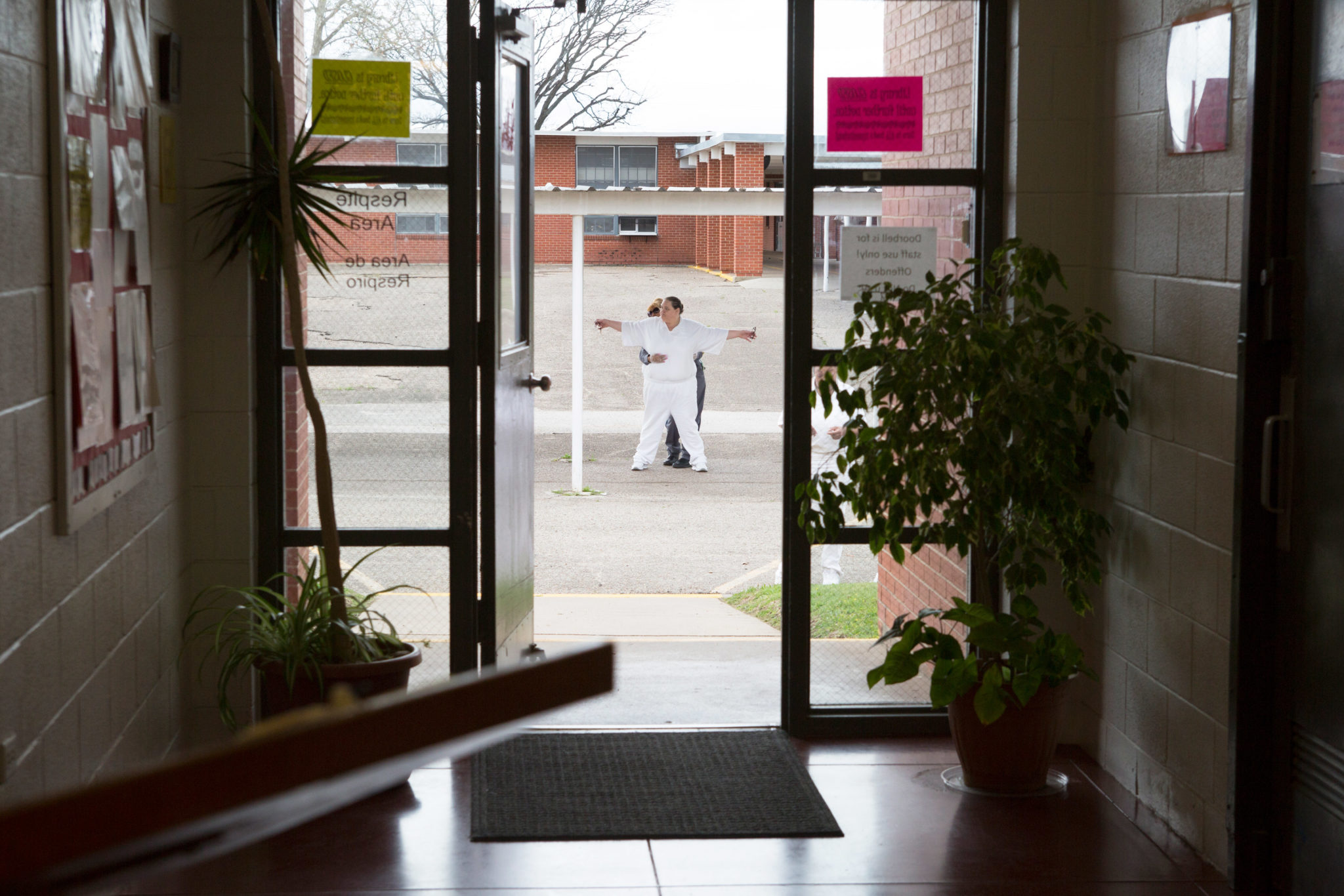
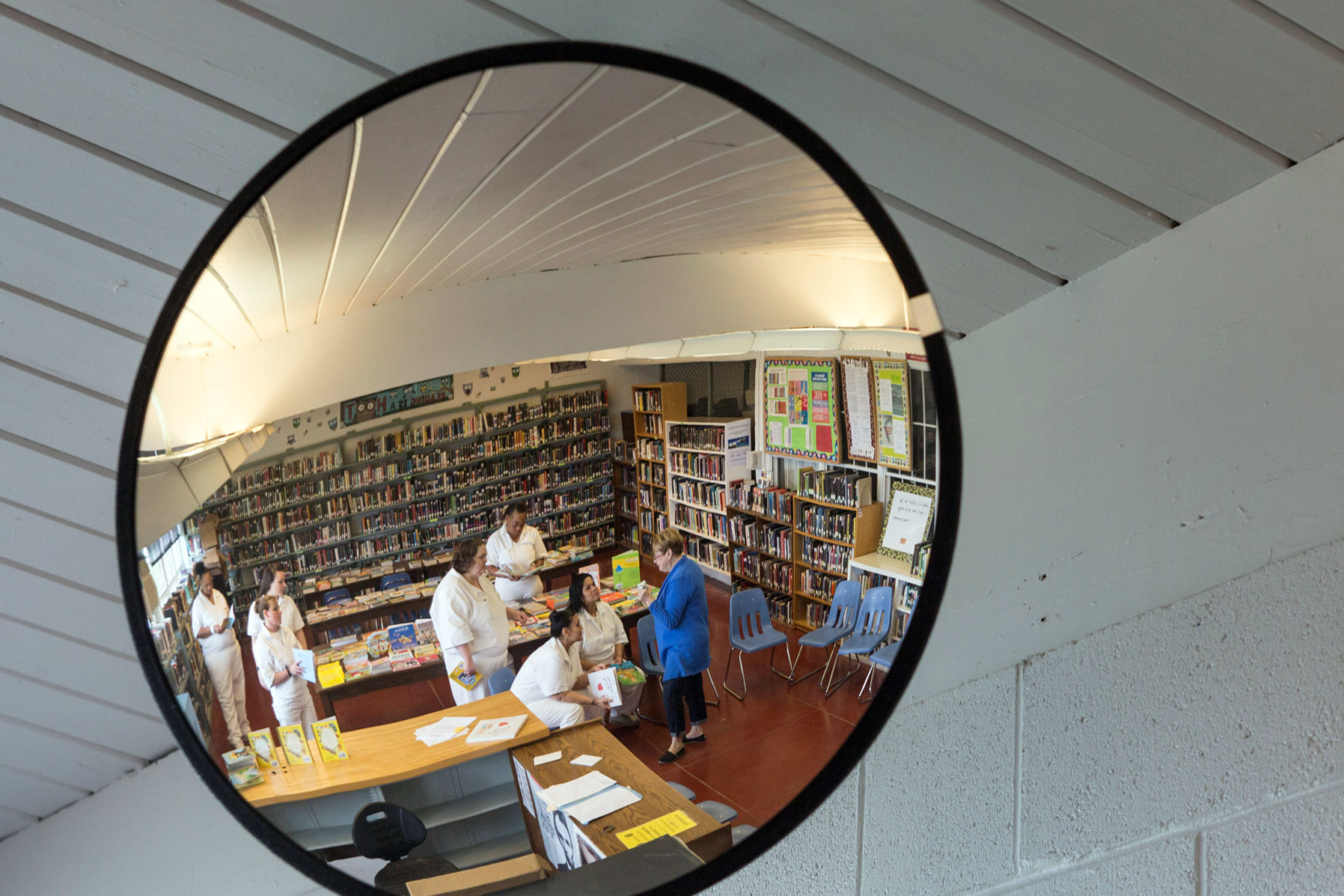
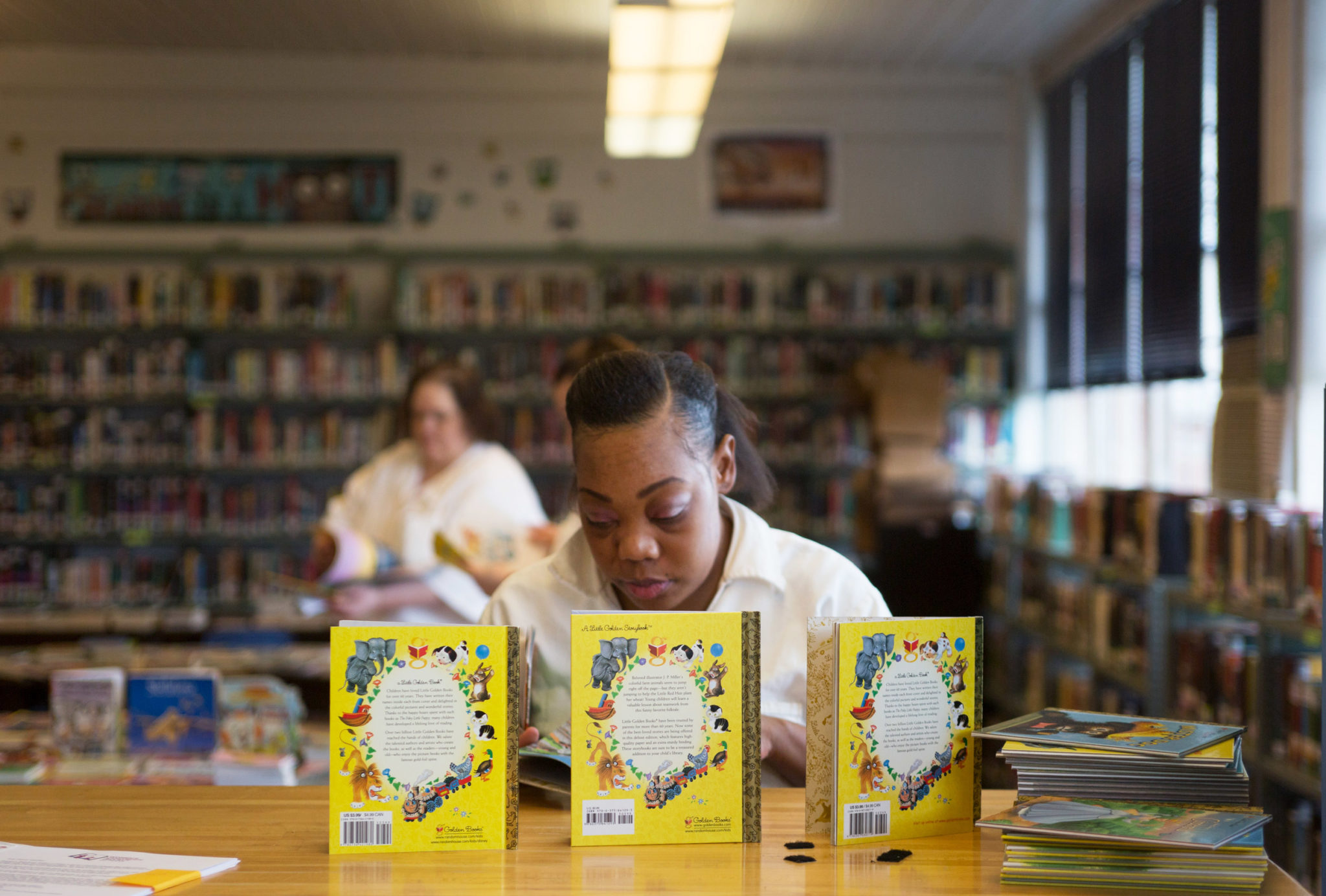
Judith Dullnig is a soft-spoken woman with short-cropped blonde hair. With her cardigan, understated jewelry and sensible shoes, she has the quiet, serious air of a librarian, though she was a stay-at-home-mom who hosted jewelry and linen trunk shows before founding Women’s Storybook Project in 2003. “We started out with five volunteers and four tape recorders,” she says. “Now we’re in eight female prisons with about 200 volunteers, and it’s become a full-time job.”
Dullnig was inspired by a similar project in Louisville, Kentucky, called Aunt Jane’s Storybook, which she heard about from friends there. “It took me about a year to figure out how I was going to do it,” she says, enlisting friends from her Episcopal church as the first volunteers. Similar projects exist around the country, but the Texas nonprofit has grown to be the largest, and one of only a few that aren’t faith-based. (The organization frequently turns down donations of religious books).
Starting an enrichment program inside Texas prisons is not for the faint of heart, but according to Dullnig, the program was an easy sell. “It’s good for the prisons and it’s good for us,” she says. “The mom’s self-esteem improves because she’s doing something positive for her child, and the behavior at the prison improves. Everybody wins.”
The biggest challenge came when volunteers upgraded from recording on cassette tapes to using USB recorders and burning CDs on laptops, which are banned from prisons. Once the group demonstrated that its computers couldn’t connect to the internet, Texas Department of Criminal Justice authorities relented. Other than the laptops and USB recorders, the nonprofit costs very little to operate; all the books are donated.
Dullnig doesn’t like to talk about herself, preferring to keep the focus on her “amazing, inspiring” volunteers. But as we make the hour-and-a-half drive from Austin to Gatesville, she ventures that she can relate to kids who grow up without a parent to read to them. Her father died before she was born, killed in action during World War II. Dullnig has vivid memories of her mother reading to her from the classic Childcraft books. She died from polio when Dullnig was 8. “I remember visiting her when she was in an iron lung,” Dullnig says. “It was scary.”
Some 65,600 mothers are incarcerated nationwide, a 131-percent increase since 1991.
She moved from Rhode Island to Vermont to live with her aunt and uncle. After earning a teaching degree at the University of Texas at Austin, she married Jon Dullnig, a Naval officer who later worked as a petroleum inspector. His career took them to Aruba, Chicago, Atlanta, New York and eventually back to Austin. Dullnig raised two children and worked as a sous chef at a writer’s retreat and a substitute teacher. All the while, she volunteered with church groups and nonprofits — a habit she says she inherited from her grandfather. “When I was a little girl, he’d bring me with him to nursing homes, where he’d go to drop off flowers for the residents,” she says.
As we drive through Gatesville, past the Highway 2 Heaven Biker Church and the Last Picture Show Drive-In, Dullnig recounts what she says to inmates who break down while reading: “It’s OK to cry. Just keep going.”
Prison is the main industry in Gatesville, home to five of the state’s 10 women’s prisons. The prisons are clustered together along Highway 36 north of town; each barbed-wire fence and lookout tower is mirrored by its twin on the other side. More than 5,000 women are incarcerated here. Since 2010, the number of women behind bars in the United States has been growing faster than any other incarcerated group — by 3 percent each year, according to the U.S. Department of Justice. Some 65,600 mothers are incarcerated nationwide, a 131-percent increase since 1991.
Dullnig is well aware of these statistics, and she says they’re partly why she’s chosen to focus her program only on mothers. “When we’ve served all the mothers in Texas prisons, then we can look at expanding to dads,” she says. She also accepts only women volunteers for prison visits. In the past, the program briefly allowed male volunteers to meet with inmates, but “it wasn’t the same,” Dullnig says. “There’s just something that only happens when we’re all women, many of us moms, together in the room.”
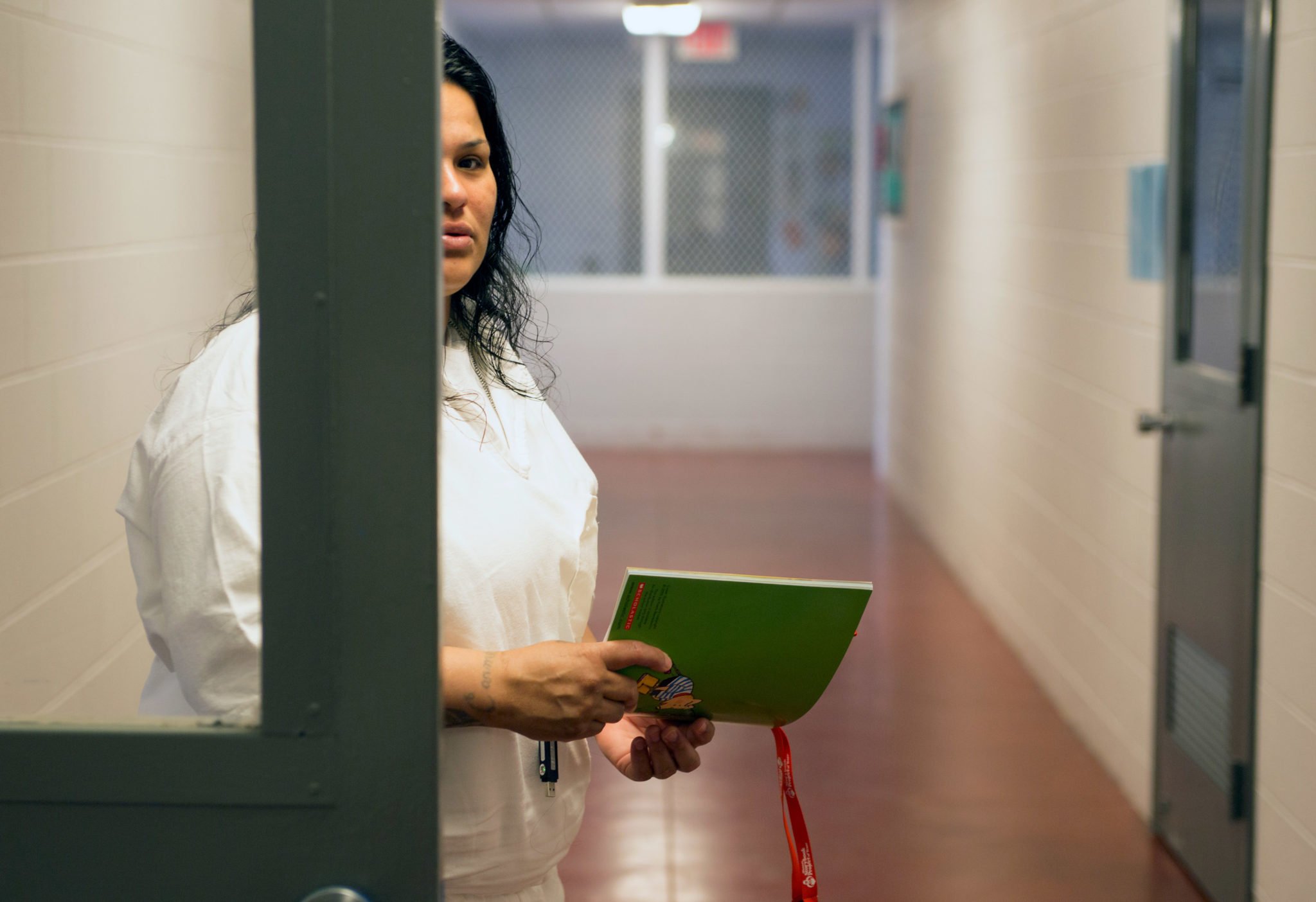
At the Mountain View Unit library, it’s Patsy Morin’s turn to record. Morin, 35, is three years into a 5-year term for robbery, away from her daughter Mireya, 8, and son Israel, 4. At the opening circle, Morin had spoken quietly, peeking out from behind a curtain of long hair that falls into her eyes. Once the recorder is running, though, she straightens up, clears her throat and starts in a booming, musical voice, “It’s me, Mommy. I’m going to read you a book called Piggy and Daddy Go Fishing. Here we go!” She often pauses to sneak in messages to her son: “Look at Piggy, he’s cleaning up his toys. Hope you remember to pick up your toys, too, Israel.”
The book she’s picked out for her daughter is Amelia Bedelia’s Masterpiece. Morin says that Mireya was recently bullied at school when she told a friend that her mom was in prison. “The other girl said she couldn’t be her friend anymore,” Morin says. “I just wish…” She trails off.
“Hi, Mireya,” she begins brightly. “I want you know that it’s another book, another month, another day closer to you.” Her voice shakes. “I love you.” Morin reads the entire 60-page chapter book without a break. At one point, a guard walks into the room with a clipboard, making rounds. Morin picks up a pen, writes down her ID number and hands the clipboard back without skipping a beat. Finally, after more than 20 minutes, she closes with, “I hope you can read this book to me one day. See you soon.”
Donna Gelfman, the volunteer helping her record, clicks off the USB recorder and hands it to Morin. The final step is to take the recorder to another room, where a volunteer will burn the audio file to a CD and give Morin the chance to write a message on the disc before packing it into a shipping envelope with the books. She smiles, thanks Gelfman, and walks off down the hall, clutching the recorder to her chest.
Editor’s note: This story has been edited to protect the identity of Tashima, one of the prisoners featured in this story, at her request after expressing concerns about the impact on her life after release.
Opening photo: Crystal Montelongo, a mentor and participant in the Storybook Project, records with volunteer Jamie Dickens. “I like to pick books with a lesson to teach,” Montelongo says. “And sometimes it’s just baby books. Whatever age they are, they will always be my babies.” /JEN REEL
